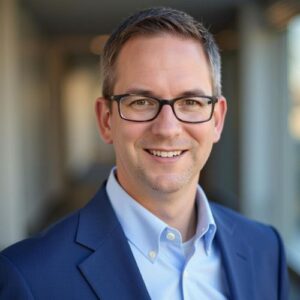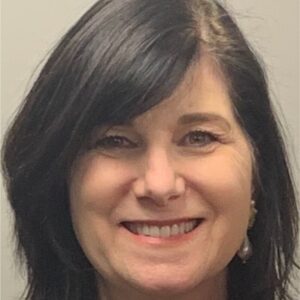One-on-one with… Peter Schuna
Born in 1978, Peter Schuna, NHA, straddles the line between Generation X and Y. Schuna also has crossed the line from direct care staff to administrator to president and chief operating officer of Minnesota-based Pathway Health, a professional service organization. Long-Term Living’s Associate Editor Nicole Stempak caught up with Schuna to talk about his unique experiences as a young worker rising up through the ranks and developing the next generation of leaders.
What was your experience like a young worker?
A lot of the workforce, at least when I entered the workforce, was older, especially those that I directly managed. When I started having 12 direct reports, the closest was probably 10 years older than I am. There’s a lot of generational differences and questioning your own ability along with people questioning your ability was nerve-racking. The biggest thing that was hard to wrap my head around and understand was the steep learning curve, especially as quickly as the industry changes. That probably gives a younger workforce today a little bit more of an advantage because you can’t rely so much on “This is the way it’s always been done.” The rules and regulations keep changing and at a rapid pace that you have to continue to change. So there’s probably some benefit for those who start today versus 15 years ago when I started.
How did you handle managing people who were older than you?
Looking back, I know how I handled it. At the time, (laughs) I’m not sure exactly I knew what I was doing! There’s really two paths that you can take: You can head-on try and prove to people by asserting authority you’re the one that’s in charge. The other option is not taking yourself quiet as serious and proving your worth through your actions, your leadership style than being that authoritative “I’ll show you.”
There were a few circumstances where someone made some a snide comment about me being a young person in a leadership position. Most of the time I turned it into more of a joking event and took them up on their requests such as, “If I had so much time, I should go clean their car.” Trying to disarm the tension that is there is easier to deal with than trying to assert authority, which I think puts more tension and they probably question your leadership even more.
How did you learn to lead a staff?
I tried lots of different things, but I was trying to find ways to connect with employees on a personal level so they understood the responsibility and the privilege of being a member of a skilled nursing facility. If you think about it, we’re housing and caring for America’s history. It’s such an opportunity to learn from residents. I kept trying to communicate how much value there is, how much understanding and the wonderful things you can learn from working here compared to working besides just getting a paycheck.
What do younger workers bring to the table?
I think the biggest thing is an idea of how technology can truly be used to enhance long-term care or post-acute care in general. I think the balance there, again, is making sure that young leaders understand it’s an industry that revolves around caring for people. It’s very intimate from the standpoint of you’re touching other individuals, or at least your staff are touching elders, in order to care for them. That’s a very vulnerable position to be in. If they know that, I think they have a great ability to be able to figure out how technology can improve those interactions, those relationships and make the industry a lot better.
Would you say technology is one of the biggest generational differences?
It absolutely is. Not that there aren’t others, but I think that’s a unique perspective that they can bring to the table that others don’t have it built into them because it hasn’t always been that way for them. I think that with technology and a different set of ways at looking at how we provide care, whether it’s millennials or somebody else, someone’s going to crack that code and make providing care better and more efficient in our country.
What advice do you have for millennials entering the field?
Find as many mentors as you possibly can and from different age groups if you can be so choosy. Spend time with them talking about what’s going on in the industry, learning from their experiences. Looking back, I feel very fortunate to have had a lot of very smart people around me. I had opportunities to take them out to lunch and pick their brains.
Get involved in associations. Find people who are dealing with the same issues you’re dealing with so you can bounce idea off and get information. I think one of the most important things for young leaders is to reach out. It’s hard to be an administrator or director whether it’s home care or hospice or a skilled nursing facility because you don’t really have any peers to speak with. Everyone reports to you. You have the ultimate responsibility 24 hours a day, 7 days a week, 365 days a year. That responsibility never goes away. If you don’t have a peer to talk to, failure rate is pretty darn high.
How can long-term care facilities recruit and retain young talent?
Look at your own employees and figure out how you’re going to keep them. I think if you focus on that retention first, you’ll easily figure out the ways, tools, profiles, and qualities to recruit young professionals into your origination once you realize what your internal culture is, what it means to be an employee, why people stay and why people go. I think once you have that internal reflection, that’s when you’re be a lot more successful on recruitment. That’s what I’ve done in the past for organizations I’ve run. I’ve made mistakes when I just thought I could go on, “I know what I’m looking for.” You don’t know until you’ve really looked inside and figured out “What is our culture? How do we operate?”
Try to find a personality, a set of traits in people who can be a leader and who have empathy for caring. Leaders are much more successful if they truly understand what’s happening on the floor and can empathize with the range of emotions both from the families and individuals along with the staff. It’s not just the care that’s delivered but how it’s delivered and how those interactions can — and should — happen.
What advice do you have for organizations to develop young talent?
Give them time to grow into roles. I think there’s a big hole across the country in the industry of having assistant type administrators. You have a better opportunity of figuring out if people are going to be successful as opposed to just tossing them in and hoping and praying when they’re the be-all and end-all leader.
I think most companies probably wouldn’t just easily hand over the reins to $10 million in revenue to a 22-year-old without the appropriate structure and training. If you think about it that way, then you can kind of back into what some of the training responsibilities or experiences needed to be successful. I think one of those is having an assistant administrator type role in an organization, so you can have that No. 2 be more operationally focused and allow that administrator to really be the CEO of that organization.
Do you see millennials leaving their mark?
I think their time, their leadership fits in well with their sort of overarching “Who millenials are,” and that is having meaningful work and a more meaningful place and not just working because they have to. I think that’s the attempt and direction of being able to pay for better interactions and better care. If they haven’t already left their mark, they’ll be quickly leaving their mark partly because they’re forced to and because it’s in their age group’s DNA.

Nicole was Senior Editor at I Advance Senior Care and Long Term Living Magazine 2015-2017. She has a Journalism degree from Kent State University and is finalizing a master’s degree in Information Architecture and Management. She has extensive studies in the digital user experience and in branding online media. She has worked as an editor and writer for various B2B publications, including Business Finance.
Related Articles
Topics: Articles , Executive Leadership , Leadership , Staffing












